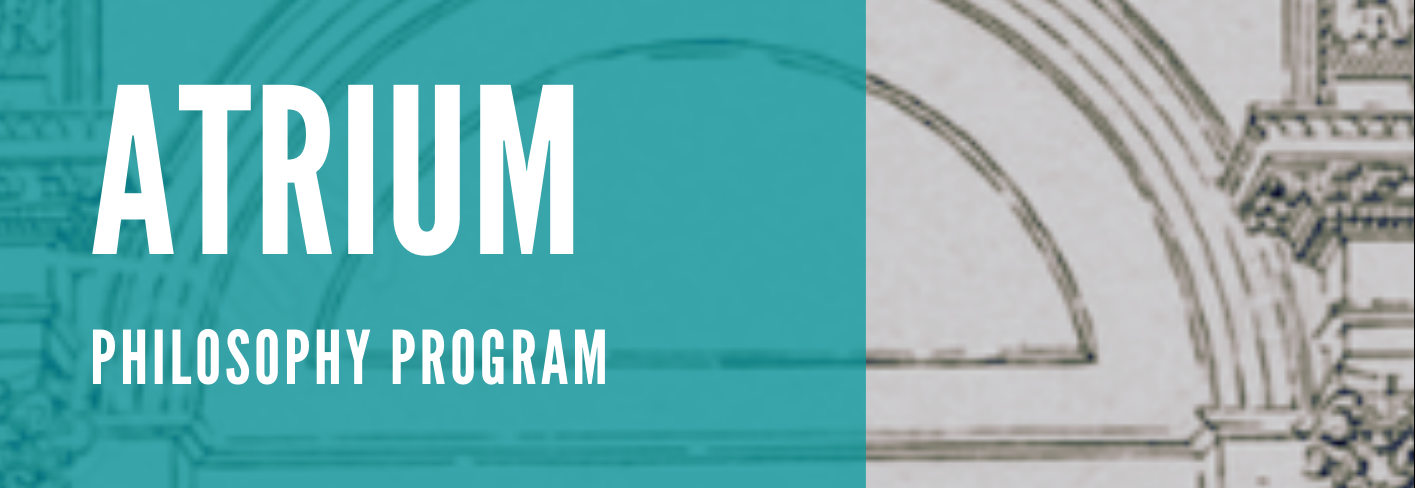
Welcome to Year 2 of Atrium!
OVERVIEW
This program is for Supernumeraries who have recently finished their initial formation. It is a three-year program that provides basic philosophical foundations, covering Introduction to Philosophy (Year 1), Philosophy of the Human Person (Year 2), and Ethics (Year 3).
The word philosophy means ‘love of wisdom’. In philosophy, human reason, drawing together and drawing on all rational knowledge, searches for the ultimate causes and meaning of things, the foundation of being. Philosophy provides the basic principles necessary to study Theology in later courses.

PHILOSOPHICAL ANTHROPOLOGY - YEAR 2
WHAT YOU WILL LEARN
ATRIUM PHILOSOPHICAL ANTHROPOLOGY (10 classes)
Course Outline 2023
COURSE DESCRIPTION: This subject aims at the philosophical study of human nature, considering the various facets of its being and dynamism. At its centre is the question of the spiritual soul: by virtue of which man is constituted as a being endowed with a life that completely transcends the material; moreover, it is constituted in a person, i.e., in a being with an intrinsic and radical dignity, who —as faith teaches us— has been called to communion with God. Thus, man appears not only as a rational animal, but also as an image and likeness of God. The philosophical study of this reality is of great importance to guide man towards his fullness, as well as to overcome the anthropological reductionisms that are present in various sectors of current culture.
COURSE PROGRAM:
1. INTRODUCTION
2. SENSITIVE DIMENSION TO HUMAN LIFE
- Characteristics
- External and internal senses
- The Tendential Dynamism – concupiscible and irascible appetite, instinct and behaviouriours
3. HUMAN INTELLIGENCE - Intellect/reasoning
- Consciousness
- Language
4. THE WILL
- Inclination to known goods.
- Spirituality of the will
- Relationship between intellect and will
- Unity of life
- AFFECTIVITY: EMOTIONS, TEMPERAMENT AND VIRTUE
- Purpose and value of emotions
- Educating and integrating emotions
- Habits and formation of character
- FREEDOM
- Definition
- Purpose
- Limits
- Freedom and evil
- PERSONHOOD
- Personal dignity
- Value
- Self-transcendence
- Classical definition
- THE PSYCHOSOMATIC UNITY OF THE HUMAN PERSON
- The human soul
- The human body
- Human sexuality
- Transcendence and finite character of the human person
- THE SOCIAL NATURE OF THE HUMAN PERSON
- Dialogue and communication
- Language and symbol
- Nature of society
- Forms of social relations
- Friendship and its characteristics
- Flourishing as individuals and society
- CULTURE AND HUMAN PRAXIS
- Manifestations of human nature in culture
- Cultural relativism and evaluation of cultures
- Values as ends of human behaviour.
- Transcendental foundations of human values
- Language and tradition
- Expressions of culture
- Formation of human person in time
- Inculturation of the faith
- WORK AND LEISURE
- Subjective and objective dimension of work
- Transformation of the world
- Recreational dimension of man
- Meaning of festivityREFERENCE MATERIAL: LOMBO, J.A.; RUSSO, F., Philosophical Anthropology: An Introduction, Scepter, New York 2014. Class notes and PowerPoint
COURSE NOTES
COURES NOTES | VIEW
